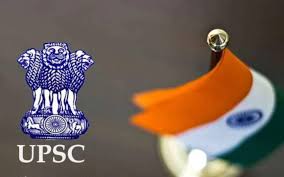“Achieve your goals in silence.” - UPSC Course
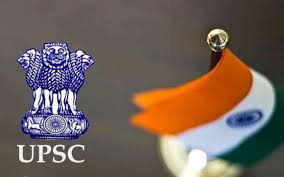
Table of Contents
ABOUT THIS BLOG:
In this blog you can find almost every information about upsc course.like syllabus, fees, jobs, salary and etc. It is one of the most competitive and toughest exam among all others. Basically it conducts in two phases about which you can get information from following content.
ABOUT UPSC COURSE
The Term ‘UPSC‘ stands for ‘UNION PUBLIC SERVICE COMMISSION’. It is the most competitive and Prestigious exam to fill in various civil service vacancies for the GOVERNMENT OF INDIA like IAS,IPS,IFS and many
FOR APPEARING IN UPSC COURSE CANDIDATES MUST HAVE COMPLETED 12TH FROM A RECOGNIZED BOARD WITH A MINIMUM AGGREGATE OF 50% OR ABOVE AND MUST COMPLETE THEIR GRADUATION FROM A RECOGNIZED UNIVERSITY.
UPCS FOUNDATION COURSE
It is the course to prepare candidates for civil service examination (CSE). it can be of 1-3 years depending on the coaching institute.
It include subjects like History,Geography,Polity,Economics,Science and Technology & Current affairs.
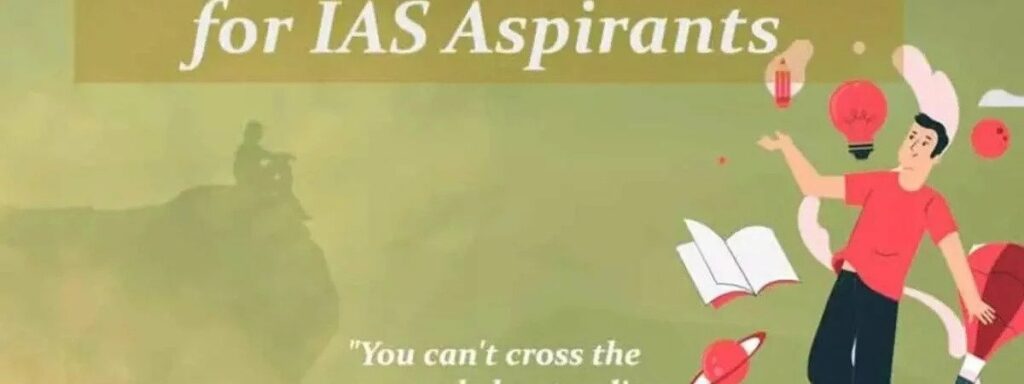
UPSC COURSE CONDUCTES IN TWO PHASES
- UPSC PRELIMS (COMPRISES OBJECTIVE TYPE QUESTIONS)
- UPSC MAINS (COMPRISES DESCRIPTIVE AND ESSAY TYPE QUESTIONS)
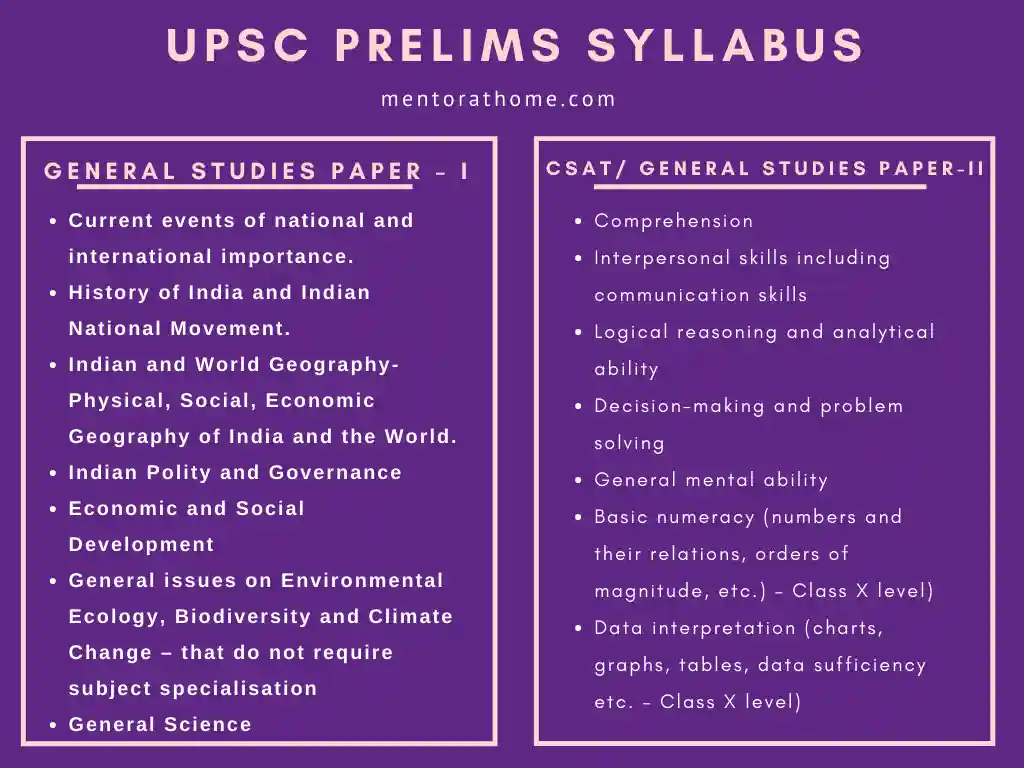
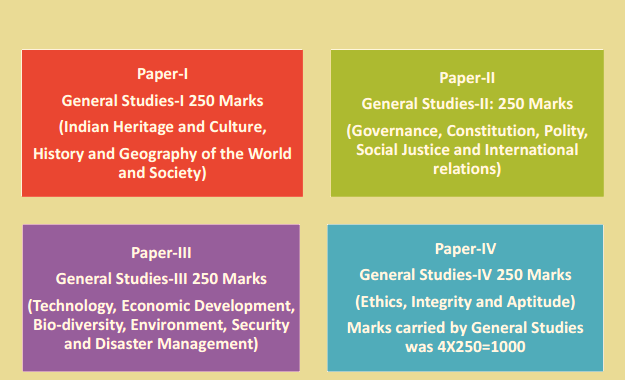
UPSC PRELIMS SYLLABUS
General Studies 1 (GS-I).
UPSC categorizes the General Studies Prelims Paper 1 Syllabus into the following broad categories:
- Current events of national and international importance.
- History of India and Indian National Movement.
- Indian and World Geography-Physical, Social, Economic Geography of India and the World.
- Indian Polity and Governance-Constitution, Political System, Panchayati Raj, Public Policy, Rights Issues, etc.
- Economic and Social Development – Sustainable Development, Poverty, Inclusion, Demographics, Social Sector Initiatives, etc.
- General issues on Environmental ecology, Biodiversity and Climate Change – that do not require subject specialization.
- General Science.
CSAT Syllabus UPSC (GS-II):
This is a part of the UPSC CSE Prelims examination in order to assess the aptitude, analytical skills, and reasoning ability of the candidate. To qualify for this paper, a minimum of 33% (66 marks) is required for every candidate.
- Comprehension.
- Interpersonal skills including communication skills.
- Logical reasoning and analytical ability.
- Decision-making and problem-solving.
- General mental ability.
- Basic numeracy (numbers and their relations, orders of magnitude, etc.), Data interpretation (charts, graphs, tables, data sufficiency etc. )
UPSC MAINS SYLLABUS
Language Papers (Indian language and English)
GS Paper I:
- Indian Culture – prominent aspects of Art Forms, Literature and Architecture from venerable to modern times.
- Modern Indian History:
→Significant events, issues and personalities amid of the eighteenth century until the present.
→ contributions from various parts of the country in ‘The Freedom Struggle’.
→Post-independence consolidation and reorganisation within the country.
- History of the world
- Events, forms and effect on society since the 18th century (world wars, industrial revolution, colonisation, redrawal of national boundaries, decolonisation, political philosophies like communism, capitalism, socialism, etc.)
- Society
- Salient aspects of indian society and diversity.
- Role of women, their organisations ,population ,poverty and developmental issues and their remedies.
- Social empowerment, communalism, regionalism & secularism.
- Globalisation effects on indian society.
- Geography
- Distribution of key natural resources across the world including South Asia and the Indian sub-continent; factors responsible for the location of primary, secondary, and tertiary sector industries in various parts of the world including India.
- Important Geophysical events such as earthquakes, Tsunami, Volcanic activity, cyclone, emissions etc.
- Geographical features and their location, changes in critical geographical features (including water-bodies and polar ice caps) and, in flora and fauna and the effects of such changes.
- Salient features of world’s physical geography.
GS Paper II
- Indian Constitution
- historical underpinnings,
- evolution, features
- amendments, significant provisions
- basic structure doctrine
- Comparison of the Indian constitutional scheme with that of other countries
- Functions and responsibilities of the Union and the States, issues and challenges pertaining to the federal structure, devolution of powers and finances up to local levels and challenges therein.
- Separation of powers between various organs, dispute redressal mechanisms and institutions
- Structure, organisation and functioning of the Executive and the Judiciary
- Parliament and State Legislatures
- structure, functioning
- conduct of business
- powers & privileges and issues arising out of these
- Ministries and Departments of the Government; pressure groups and formal/informal associations and their role in the Polity.
- Salient features of the Representation of People’s Act
- Powers,functions and duties of various constitutional bodies and appointment to various constitutional posts.
- Statutory, regulatory and various quasi-judicial bodies.
- Government policies and interventions aimed at development in various sectors and issues arising out of their design and implementation.
- Development processes and the development industry – the role of NGOs, Self Help Groups, various groups and associations, institutional and other stakeholders.
- Welfare schemes for vulnerable sections of the population by the Centre and the States and the performance of these schemes; mechanisms, laws, institutions and Bodies constituted for the protection and betterment of these vulnerable sections.
- Issues relating to development and management of Social Sector/Services relating to Health, Education, Human Resources
- Issues relating to poverty and hunger
- Important aspects of governance, transparency and accountability, e-governance- applications, models, successes, limitations, and potential; citizens charters, transparency & accountability and institutional and other measures
- Role of civil services in a democracy
- International Relations
- India and its neighbourhood – International relations
- Bilateral, regional and global groupings and agreements involving India and/or affecting the Indian interests
- Effect of policies and politics of developed and developing countries on India’s interests, Indian diaspora.
- Important International institutions, agencies, their structure and mandates
GS Paper III
- Economy
- Indian Economy and issues relating to planning, mobilisation of resources, growth, development and employment.
- Government Budgeting.
- Inclusive growth and associated issues/challenges
- Effects of liberalisation on the economy (post 1991 changes), changes in industrial policy and their effects on industrial growth.
- Infrastructure – Energy, Ports, Roads, Airports, Railways etc.
- Investment models (PPP etc)
- Agriculture
- Major cropping patterns in various parts of the country, different types of irrigation and irrigation systems storage, transport and marketing of agricultural produce and issues and related constraints; e-technology in the aid of farmers
- Economics of animal rearing.
- Food processing and related industries in India – scope and significance, location, upstream and downstream requirements, supply chain management.
- Issues related to direct and indirect farm subsidies and minimum support prices; Public Distribution System objectives, functioning, limitations, revamping; issues of buffer stocks and food security; Technology missions
- Land reforms in India.
- Science and Technology
- Recent developments and their applications and effects in everyday life
- Achievements of Indians in science & technology.
- Indigenisation of technology and developing new technology.
- General awareness in the fields of IT, Space, Computers, Robotics, Nanotechnology, bio-technology
- Issues relating to intellectual property rights
- Environment
- Conservation,
- Environmental pollution and degradation
- Environmental impact assessment
- Disaster Management (Laws, Acts etc.)
- Security
- Challenges to internal security (external state and non-state actors)
- Linkages between development and spread of extremism
- Challenges to internal security through communication networks, role of media and social networking sites in internal security challenges,
- Basics of cyber security; money-laundering and its prevention
- Security challenges and their management in border areas; linkages of organised crime with terrorism
- Various Security forces and agencies and their mandates
GS Paper IV:
- Ethics and Human Interface
- Essence of Ethics, Determinants and Consequences of Ethics in Human Interaction
- Dimensions of Ethics
- Ethics in private and public relationships
- Human Values – lessons from the lives and teachings of great leaders, reformers and administrators
- Role of family, society and educational institutions in inculcating moral and ethical values
- Attitude
- Content, structure and function of attitude
- Influence of attitude in thought and behaviour
- Relation of attitude to thought and behaviour
- Moral and Political attitudes
- Social influence and persuasion
- Aptitude
- Aptitude and foundational values of Civil Service
- Integrity
- Impartiality and non-partisanship
- Objectivity
- Dedication to public service
- Empathy, tolerance and compassion towards the weaker sections of the society
- Emotional Intelligence
- Concepts of emotional intelligence
- Utility and application of emotional intelligence in administration and governance
- Ethics and Human Interface
- Essence of Ethics, Determinants and Consequences of Ethics in Human Interaction
- Dimensions of Ethics
- Ethics in private and public relationships
- Human Values – lessons from the lives and teachings of great leaders, reformers and administrators
- Role of family, society and educational institutions in inculcating moral and ethical values
- Attitude
- Content, structure and function of attitude
- Influence of attitude in thought and behaviour
- Relation of attitude to thought and behaviour
- Moral and Political attitudes
- Social influence and persuasion
- Aptitude
- Aptitude and foundational values of Civil Service
- Integrity
- Impartiality and non-partisanship
- Objectivity
- Dedication to public service
- Empathy, tolerance and compassion towards the weaker sections of the society
- Emotional Intelligence
- Concepts of emotional intelligence
- Utility and application of emotional intelligence in administration and governance
- Contributions of Thinkers and Philosophers
- Contributions of moral thinkers and philosophers from India and the world to the concepts of morality
- Public/Civil Service Values and Ethics in Public Administration
- Status and associated problems
- Ethical concerns and dilemmas in government and private institutions
- Laws, rules, regulations and conscience as sources of ethical guidance
- Accountability and ethical governance
- Strengthening of ethical and moral values in governance
- Ethical Issues in international relations and funding
- Corporate governance
- Probity in Governance
- Concept of public service
- The philosophical basis of governance and probity
- Information sharing and transparency in government
- Right to Information
- Codes of ethics
- Codes of Conduct
- Citizen’s Charters
- Work culture
- Quality of service delivery
- Utilization of public funds
- Challenges of corruption
INTERVIEW
AFTER CLARIFYING BOTH THE EXAMS CANDIDATE WILL BE ELIGIBLE FOR THE LAST STEP OF THIS COURSE WHICH IS 'INTERVIEW'.
The interview i.e. Personality test is more of a purposive conversation intended to explore the mental qualities and analytical ability of the candidate.

Here are some books which are preferable or recommended for 'UPSC COURSE' preparation:-
Books recommended for upsc prelims:
- ‘INDIAN POLITY‘-BY LAXMIKANT
- ‘INDIAN ART AND CULTURE’-BY NITIN SINGHANIA
- ‘A BRIEF HISTORY OF MODERN INDIA’-BY SPECTRUM BOOKS
- ‘NCERT’ FOR GEOGRAPHY
- ‘INDIAN ECONOMY’-BY RAMESH SINGH
Books recommended for upsc mains:
- ‘INDIA’S STRUGGLE FOR INDEPENDENCE‘-BY BIPAN CHANDRA
- ‘ANCIENT INDIA’-BY R.S. SHARMA
- ‘HISTORY OF MEDIEVAL INDIA’-BY SATISH CHANDRA
- ‘INDIA AFTER INDEPENDENCE’-BY BIPAN CHANDRA
- ‘WORLD GEOGRAPHY’-BY MAJID HUSAIN
- ‘ENVIRONMENT AND DISASTER MANAGEMENT’-TATA McGRAW HILLS
- ‘CERTIFICATE PHYSICAL AND HUMAN GEOGRAPHY’-BY GC LEONG
- ‘FUNDAMENTAL OF PHYSICAL GEOGRAPHY’ NCERT 11TH
Basically ‘Arts stream‘ subjects are more preferable for this course like History,Geography,political science and many more but aspirants of any field can give upsc exam.
- Students of upsc are advisable to prefer ‘NCERT’ textbooks to get the basic rights.
- Read thoroughly the previous year papers for your practice.
- Don’t forget ‘Quality over Quantity’ – choose some best books to study and stick to them.
- Always read two to three good Newspapers to keep yourself updated.
Here are some UPSC jobs:
- IAS(INDIAN ADMINISTRATIVE SERVICE)
- IFS(INDIAN FORIEGN SERVICES)
- IAAS(INDIAN AUDIT AND ACCOUNTS SERVICE)
- ICFS(INDIAN COMMUNICATION FINANCE SERVICE)
- IPS(INDIAN POLICE SERVICE)
- IRTS(INDIAN RAILWAY TRAFFIC SERVICE)
- IRS(INDIAN REVENUE SERVICE)
- ICAS(INDIAN CIVIL ACCOUNT SERVICE) AND ETC.
TOP 10 UNIVERSITIES FOR UPSC IN INDIA:
- DELHI UNIVERSITY(DU)
- INDIAN INSTITUTE OF TECHNOLOGY(IIT),KANPUR
- INDIAN INSTITUE OF TECHNOLOGY (IIT),DELHI
- JAWAHAR LAL NEHRU UNIVERSITY(JNU),DELHI
- ANNA UNIVERSITY,DELHI
- BANARAS HINDU UNIVERSITY(BHU),UTTAR PRADESH
- THE UNIVERSITY OF ALLAHABAD
- ST STEPHENS COLLEGE,NEW DELHI
- INDIAN INSTITUTE OF TECHNOLOGY,KHARAGPUR
- INDIAN INSTITUTE OF TECHNOLOGY,ROORKEE
The candidate must be of 21 years or more but not more than 32 years.
- www.mea.gov.in
- www.mha.nic.in
- www.lawmin.nic.in
- www.rbi.org.in
- www.socialjustice.nic.in
- www.indiaculture.nic.in
- www.gov.in
- www.arc.gov.in
MAXIMUM AGE LIMIT FOR APPEARING IN UPSC EXAMINATION:-
- FOR GENERAL- 32 YEARS
- OBC- 35 YEARS
- SC/ST- 37 YEARS
ABOUT THIS BLOG:
In this blog you can find almost every information about upsc course.like syllabus, fees, jobs, salary and etc. It is one of the most competitive and toughest exam among all others. Basically it conducts in two phases about which you can get information from above content.
If anyone want more detailed information about upsc course and other civil service examination then there are many government websites to check like upsc.gov.in, www.mha.nic.in, www.mea.gov.in and etc.

